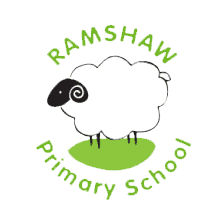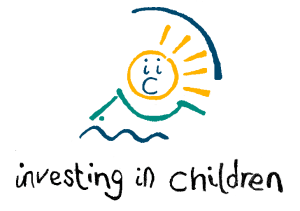NSPCC
Just to let parents know that Police have recently been involved in an incident of suspected on line grooming of children of primary age in this locality. These unknown person/s have identified themselves as famous people, in particular members of One Direction on Skype.
Durham E-safety assessors have liaised closely with the police and would advise parents and carers to talk with their children, in particular to discuss social media. We would advise you to view all conversation histories on Skype and talk to your child about anyone that they may have and conversations with on it. We would also ask you to check any conversation history on other social media network sites such as Facetime, Snapchat, Instagram, Facebook, gaming sites, chat rooms etc. Please check all your child’s devices including computers, laptops, tablets, phones, gaming devices, kindles etc. Please ensure parental controls are in place on all media devices. The children need to be aware they are not in trouble, and this is about us safeguarding them.
Note: The terms and conditions of many sites (Facebook, Instagram etc…) prohibit their use by young people under the age of 13, and their use by young people should not be encouraged.
If you have time, then do take a look at the NSPCC’s latest resource called ‘Share Aware’. The video’s quite good, too.
Snapchat – Inappropriate Images
Many of you will have seen press coverage reporting the upload of a large number of stolen Snapchat photos to the internet.
These images have apparently been taken from a third party site ‘SnapSaved.com’ which appears to have been hacked. ‘SnapSaved.com’ enables users to save Snapchat pictures rather than see them disappear but in doing so saves the images on its own servers. Press reports state that it is images from this database which have been uploaded and made available via the 4Chan discussion boards. This story from The Independent provides background.
From the press reports it would appear that:
It is unlikely the images are linked to usernames so it would be hard to locate a photo of an individual.
There is no additional personal information associated with images.
Most of the images are not sexual.
Despite this, young people you work with may be concerned that images of them have been uploaded. It’s really important that they are provided with support and know what to do if they lose control of a sexual image. It’s never too late to get help.
Young people can:
Talk to a counsellor at ChildLine on 0800 111 or at www.childline.org.uk. ChildLine will also work with the Internet Watch Foundation to notify sites hosting images to have them removed.
If young people are being harassed, threatened or blackmailed because of a sexual image they can report to us at CEOP via the CEOP report form at www.ceop.police.uk/safety-centre
If images end up on a site they can often report to the sites where they have been shared. Find out how to report to some popular sites in the ‘Help’ sections of our Thinkuknow for 11-13s and Thinkuknow for 14+ sites.
Simon Finch
Fabulous news!
We’re really delighted that Simon Finch – celebrated speaker on e-safety has agreed to visit on Tuesday 4th November to speak to staff and parents. We’ll be holding the meeting at St. Chad’s (because there’s more room) and if you’re a sat navvy, then DL14 0EP will take you there. Simon is a brilliant guide to e-learning, e-safety, social media and digital citizenship. Basically, if you’ve the least doubt about Facebook, Instagram, Twitter or other media – then he’s your man. We’ve heard him speak and what he has to say is incredible. We’ve asked Simon to do a slot specifically for parents, so please do try to come. It’ll honestly be worth your while and there’s no charge at all.
If you’d like to come, but can’t get transport, then do let us know and we’ll sort some out for you.
If you’d like to know a little more about Simon, then he’s on digitallyconfident.org. Alternatively, click on his picture and it’ll take you to his twitter page.
I can’t keep up my kids know more than me!
We all know that feeling, don’t we? But never fear, help is out there.
One of the best sites that we know is digitallyconfident.org.
There are some excellent articles aimed not just at kids, but for ourselves as teachers and parents too.
They’re well written and very accessible. We’ve spoken with Simon Finch from Northern Grid and he’s going to be coming into school this term to do a little bit of training for us. If you take a look at http://simfin.wordpress.com/about/ you’ll see just how good a speaker Simon is. If you’d like to come to this training with us, then you’d be very, very welcome. We’l let you know the exact date and time just as soon as we get it.
In the meantime, if you’d like a little more support in how we can all help the children to become more digitally confident citizens, them please click on the picture above.
E-Safety Advice – Instant Messaging Apps (May Update)
Over the last few months quite a few new messaging apps have been released giving young people different spaces to share secrets anonymously online (Whisper and Yik Yak to name a couple).
Just as a Sat Nav uses Global Positioning System (GPS) data to locate where you are in your car, these apps use the same data, this time from your smartphone, to identify your physical location and share anonymous posts from people who are nearby (typically within a 5 mile radius). This makes the service all the more unique to each person which might attract some younger users. As with other anonymous messaging services such as Ask.fm, the new apps highlight similar risks around seeing posts or receiving replies which contain harmful/ harassing content. Because of this, there’s no time like the present to talk to the young people you work with about these risks.
A good place to start would be with age restrictions. Many of these applications are not meant to be used by children under the age of 13 and some even 17. It would also be good to remind users that the GPS data on their phone could mean that that they’re releasing more information than they realise about their whereabouts. If posts are received that are personally harassing in nature, users should take evidence of this, block the user and report via the sites reporting routes. If you’re helping a young person navigate this process and need further support , please don’t hesitate to give the helpline a call on 0844 381 4772 or email: helpline@saferinternet.org.uk
To end on a positive note, it’s great to see new messaging services taking proactive steps to keep younger users safer online; ‘Whisper’ have a project called ‘Your Voice’ which signposts users to services that they can use for support with mental health issues and ‘Yik Yak’ uses geo data in a really positive way to prevent it from being accessed in schools across the US. Although this feature is yet to be rolled out in the UK, the fact that it can be achieved has great implications for the future of these services and the protection of young people online.
Keeping Children Safe Online
Keeping children safe online is an online learning course for anyone working with children.
It’s designed to help you understand how children use the internet and other digital technology.
It’s a joint initiative between the NSPCC and the Child Exploitation Online Protection Centre (CEOP), aimed at any organisations or professionals working with children.This e-learning course will help you to think about the issues that young people face online and the challenge that we have to protect and educate them.
We’ve purchased the training package from the NSPCC/CEOP and if anyone would like to work through the course alongside staff in school, then do please let us know.
E-Safety Schemes of Work
Each term, we revisit E-safety as part of our Safeguarding process.
All of our children have access to the internet and to keep this safe, we have a filtering service in school that blocks any sites that may have inappropriate elements.
Please find here the schemes of work that we use to teach the children how to be safe. Whether it’s online, texting or social media – there’s an awful lot of good advice here
If you do have any concerns or worries about the internet and your child’s access, then please don’t hesitate to contact us.










